Sree embedded is the best institute where we gain the knowledge on real time projects and the teaching skills and the environment are very good.
Rohini

Good Institute for real time projects.
Bhanu Chander

Good Institute for Linux Device Drivers. Practical Oriented and real-time projects.
Srinivas

Good Institute for Linux Device drivers. Faculty have more than 10+ years of experience and his way of approach is good. It helps me to enchance the career in embedded domain.
Sohail

Best institute where we get real time projects, more guidance from mentor.
Shilpa
Good Institute for coachiung on C, LSP, Device Drivers & Iot. Real time projects on Audio, Wi-Fi & IoT. The way Faculty teaches very good with practical examples.
Archana

Best institute in Hyderabad. Way of teaching is excellent. Every concept is well explained with examples. Projects are good. So, more chances are there to get a job.
Sree Poorna
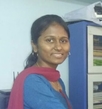
Best Institute for embedded Linux & Device drivers, faculty has excellent knowledge and more than 10+ years of real time experience in embedded domain
Chaithanya
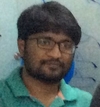
To gain the knowledge, it's one of the best place to learn Audio, Wi-Fi technology, Android Programming with real time projects.... Totally, it's a very Friendly Environment and 100% Placements
Yashwanth
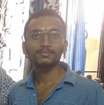
Trainers has excellent knowledge .Especially for IOT and other new emerging technologies.IOT framework explanation with real time examples for both fresher's and working professionals is their speciality
Rajendra
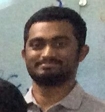
Good institute for embedded system coaching and Realtime projects. Friendly environment in teaching. 100% placement assistance.mostly working on practical way,i like so mush sreekumar sir teaching.
Hari

Best place to learn C,LSP (Linux system programming),wifi concepts ,Internet of things ,Android thigs,Device Drivers ,Real time Projects and so on..,The faculty encourages every individual to succeed in their path and to get placed in particular organization.
Praneetha
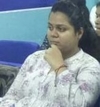
SREE EMBEDDED TECHNOLOGIES is one of the best Institute in the hyderabad. I recommend you to join,this institute to learn more on lsp, device drivers, embedded Linux and real time projects... etc,with practical and theoretical knowledge. Sree kumar sir put a lot of effort on students to get success in this field. Here main advantage is collaborative environment is possible,while doing the real time projects, if any issue's or bugs got reguarding project, we will solve those with our team as like same in the industry.
Anil
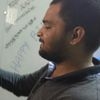
The institute where we have a Real Time trainers where they are still in real time market having the updated technologies knowledge and training will be parallel to the real time market, having updated projects which are running in the real time market
Sainath

Good institute for Linux,Device Drivers and real time projects on embedded system.Faculty having more than 10 years of experience in embedded industry.
Ajay

One of the best institute for real-time projects and device drivers. Faculty have more than 10 years of experience.
Praveen
